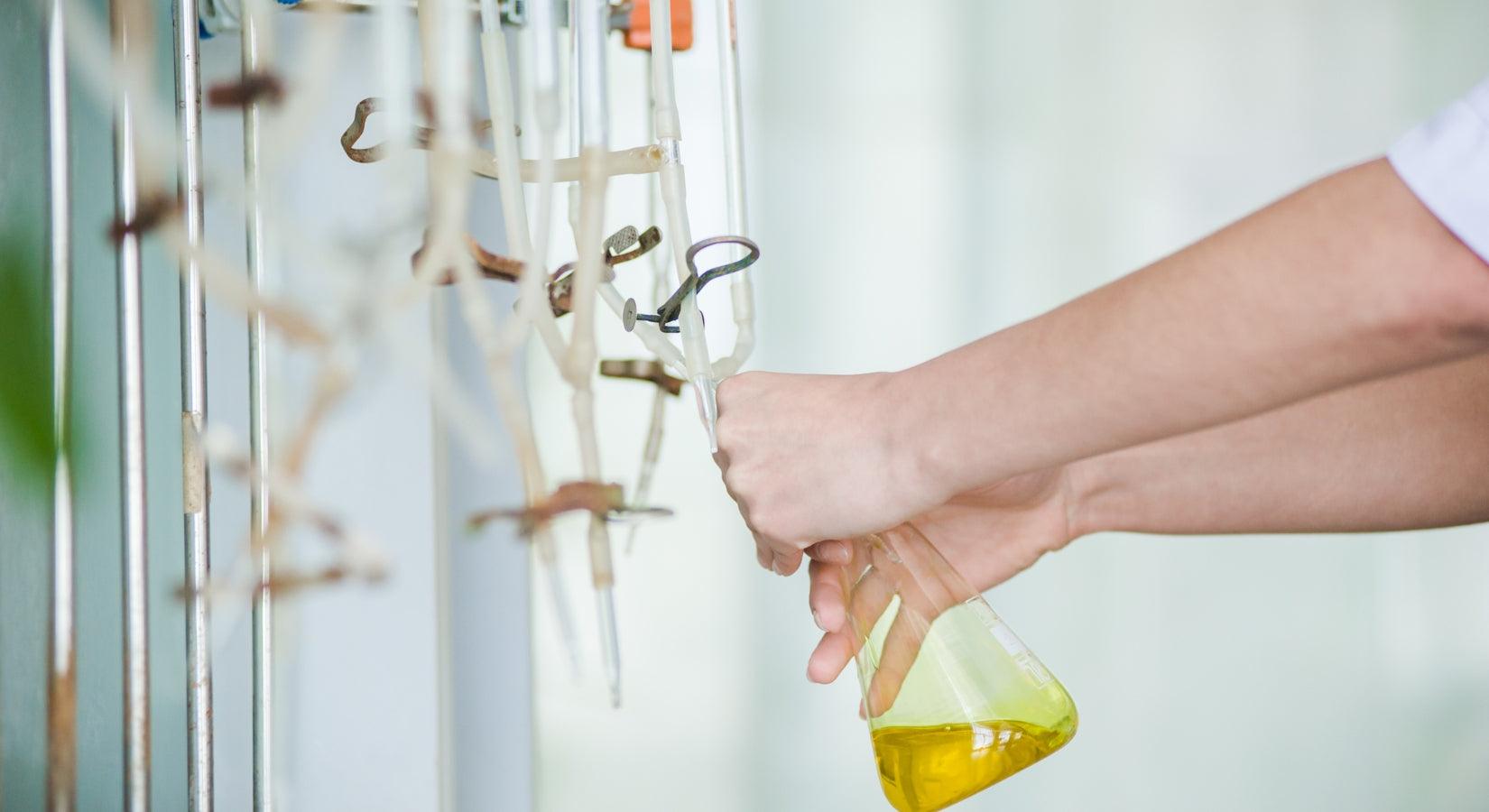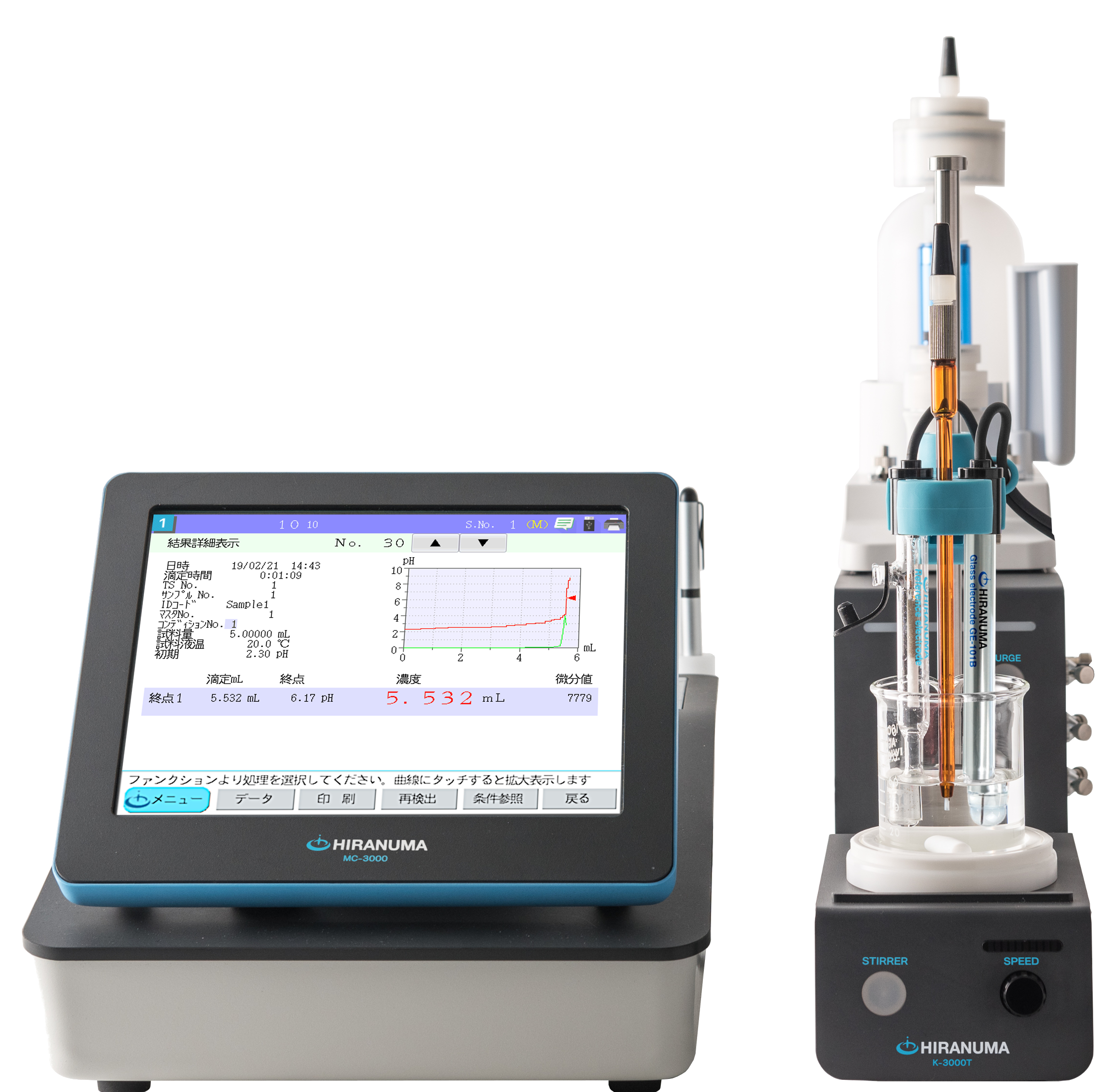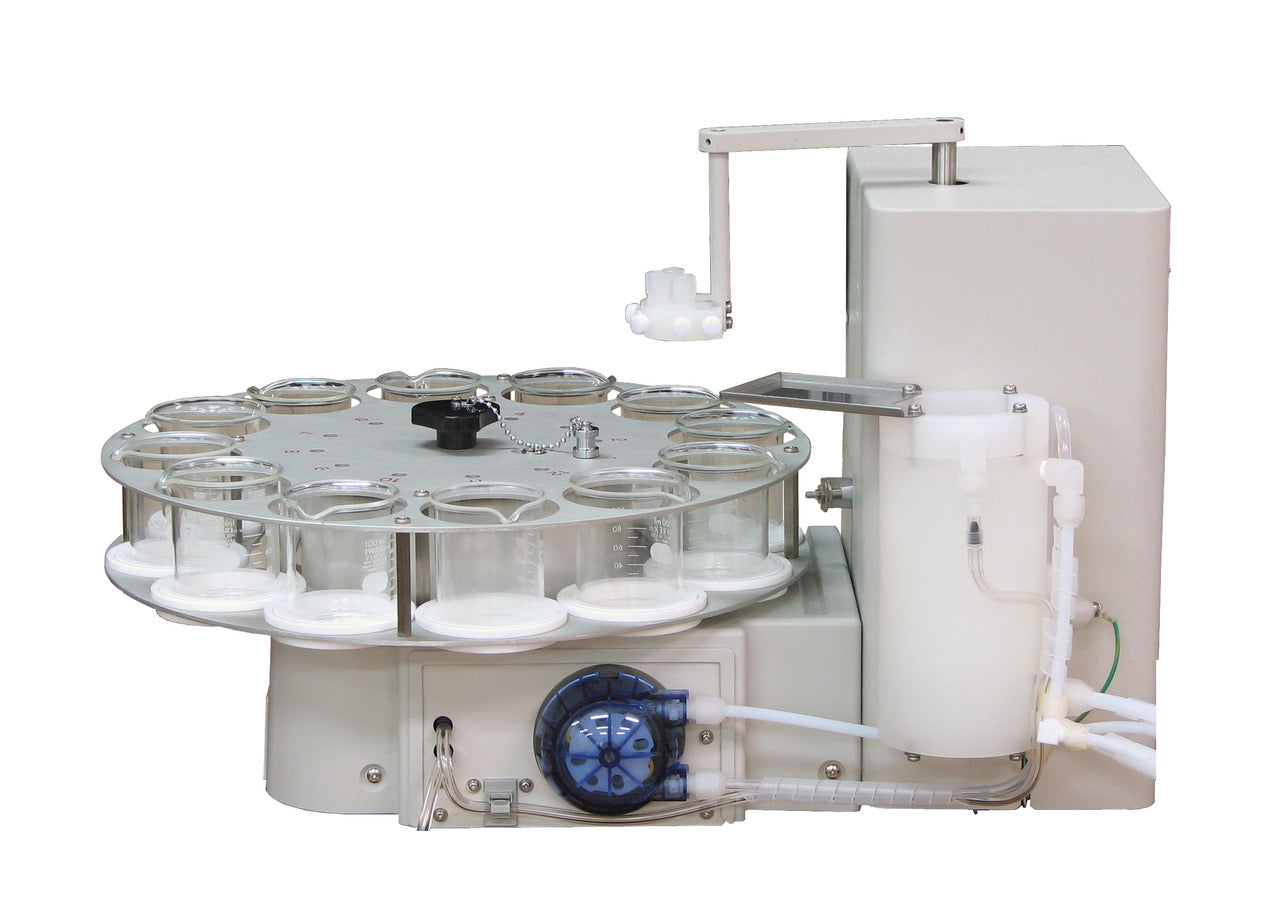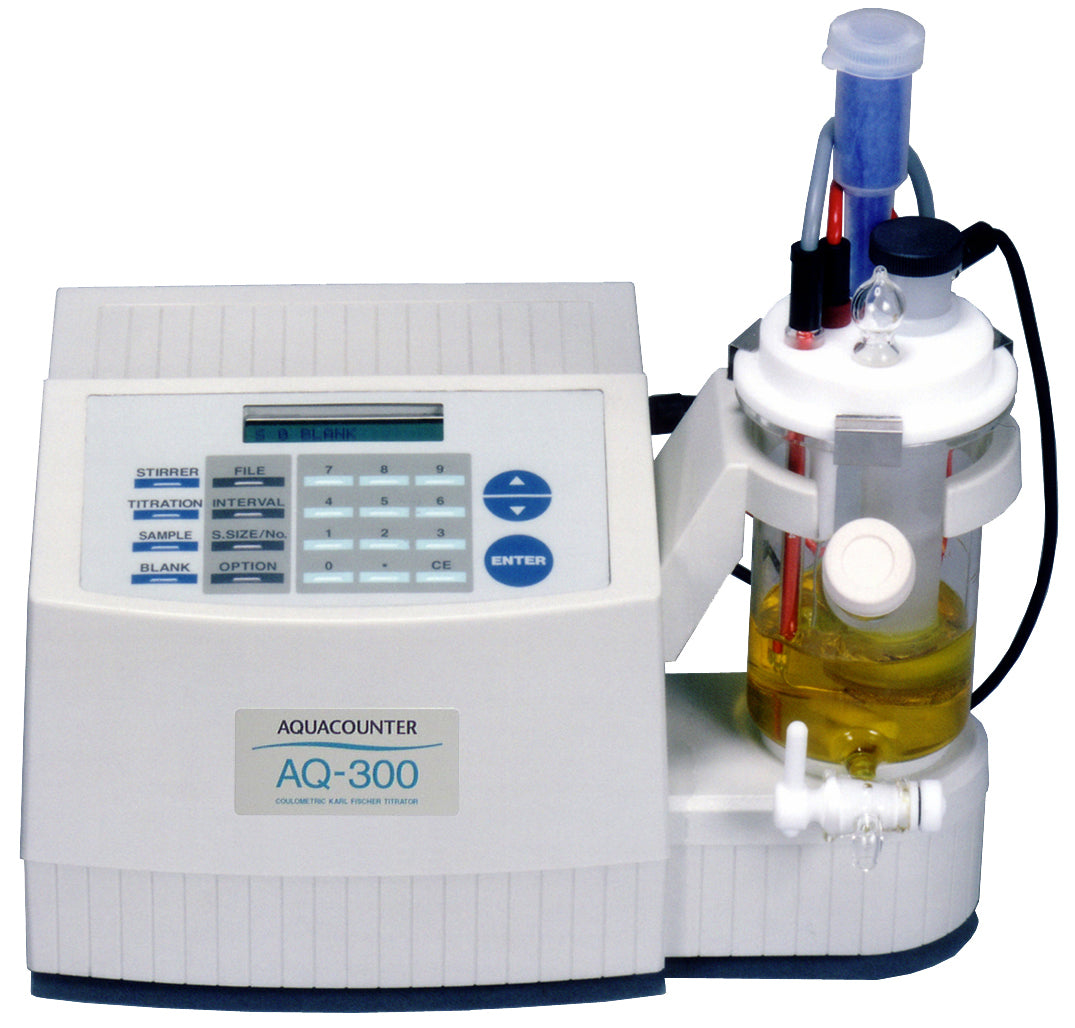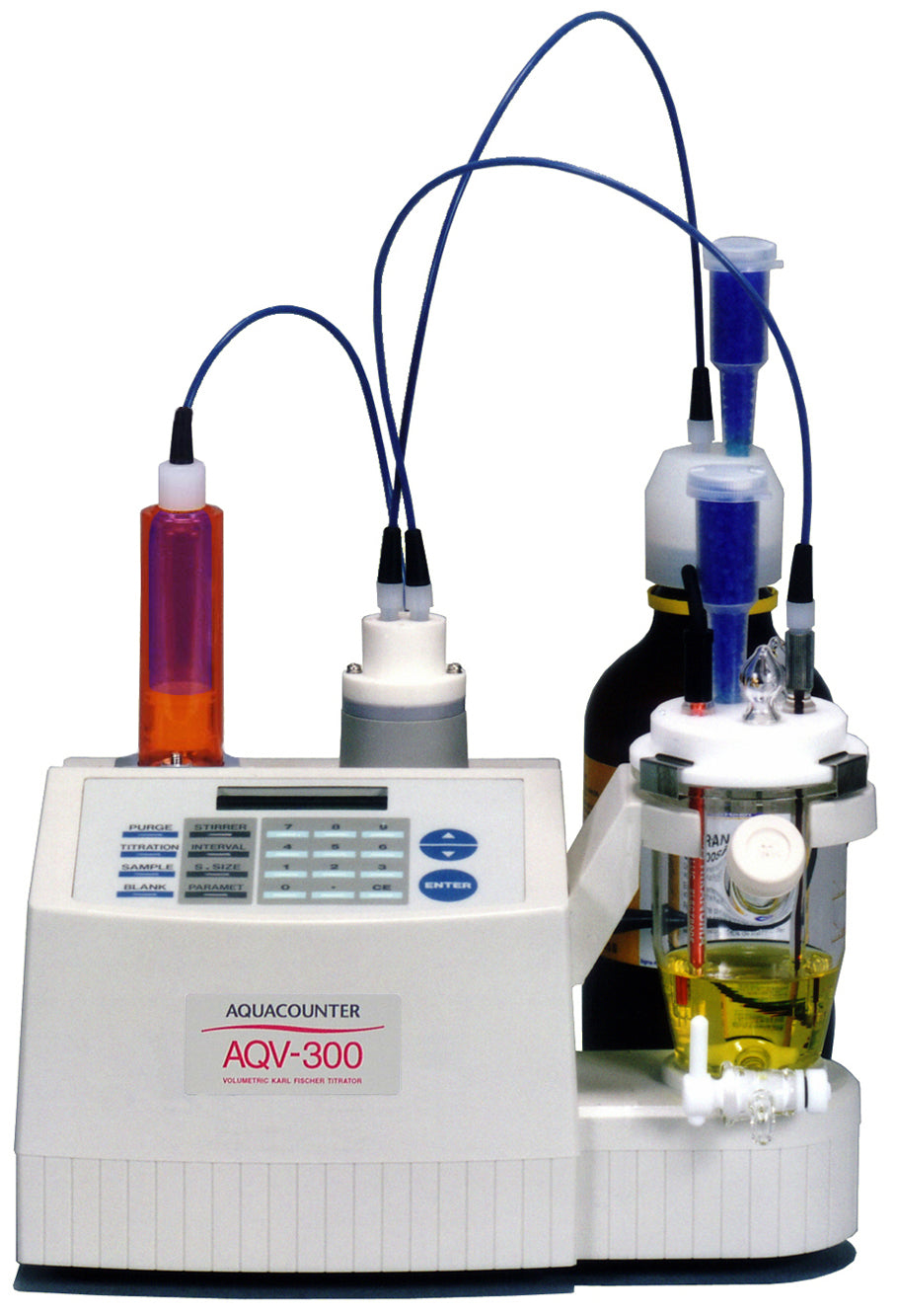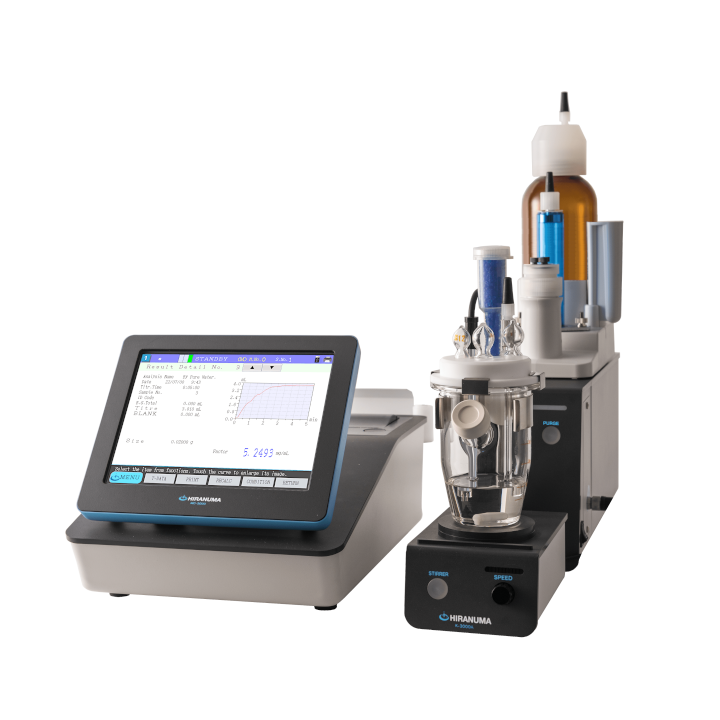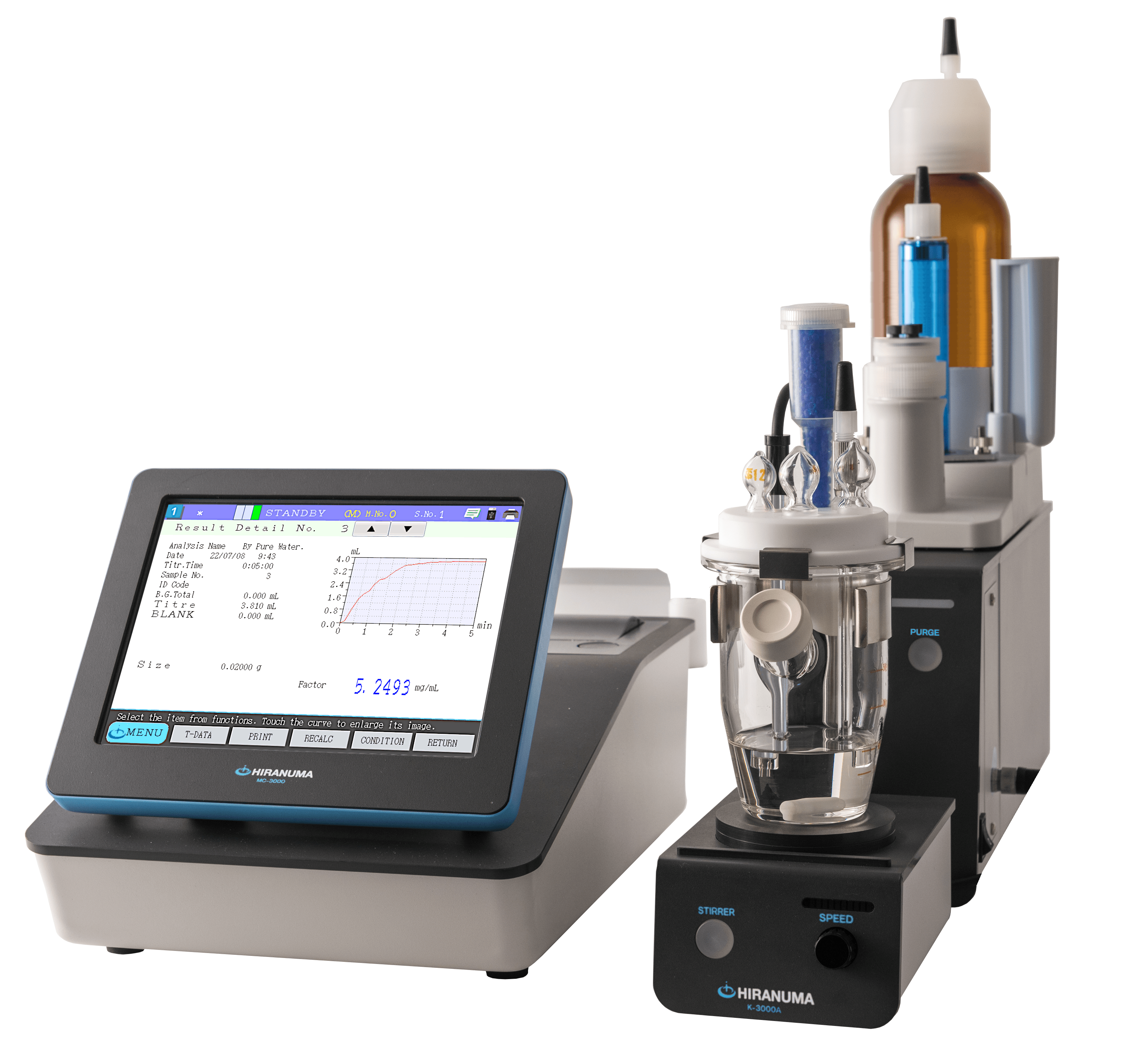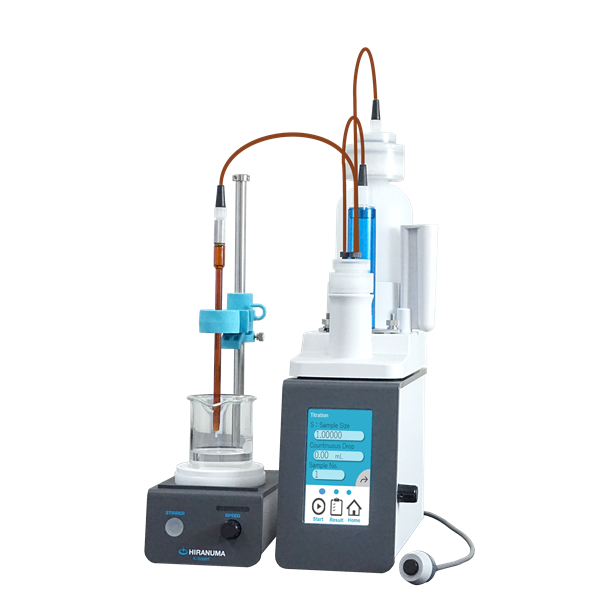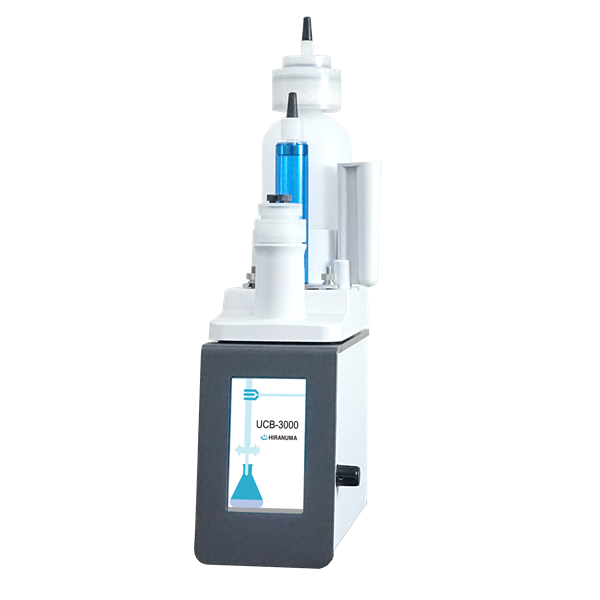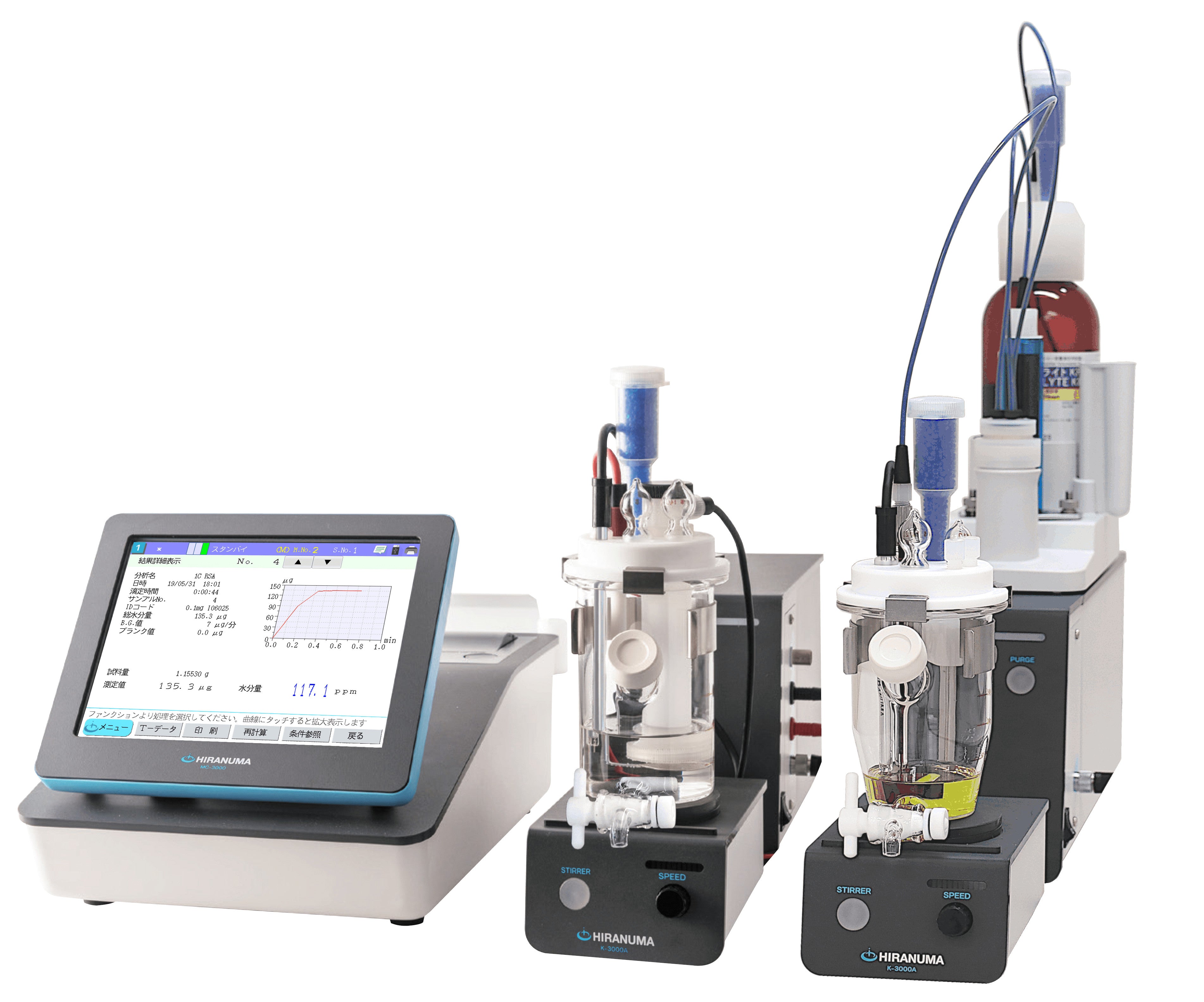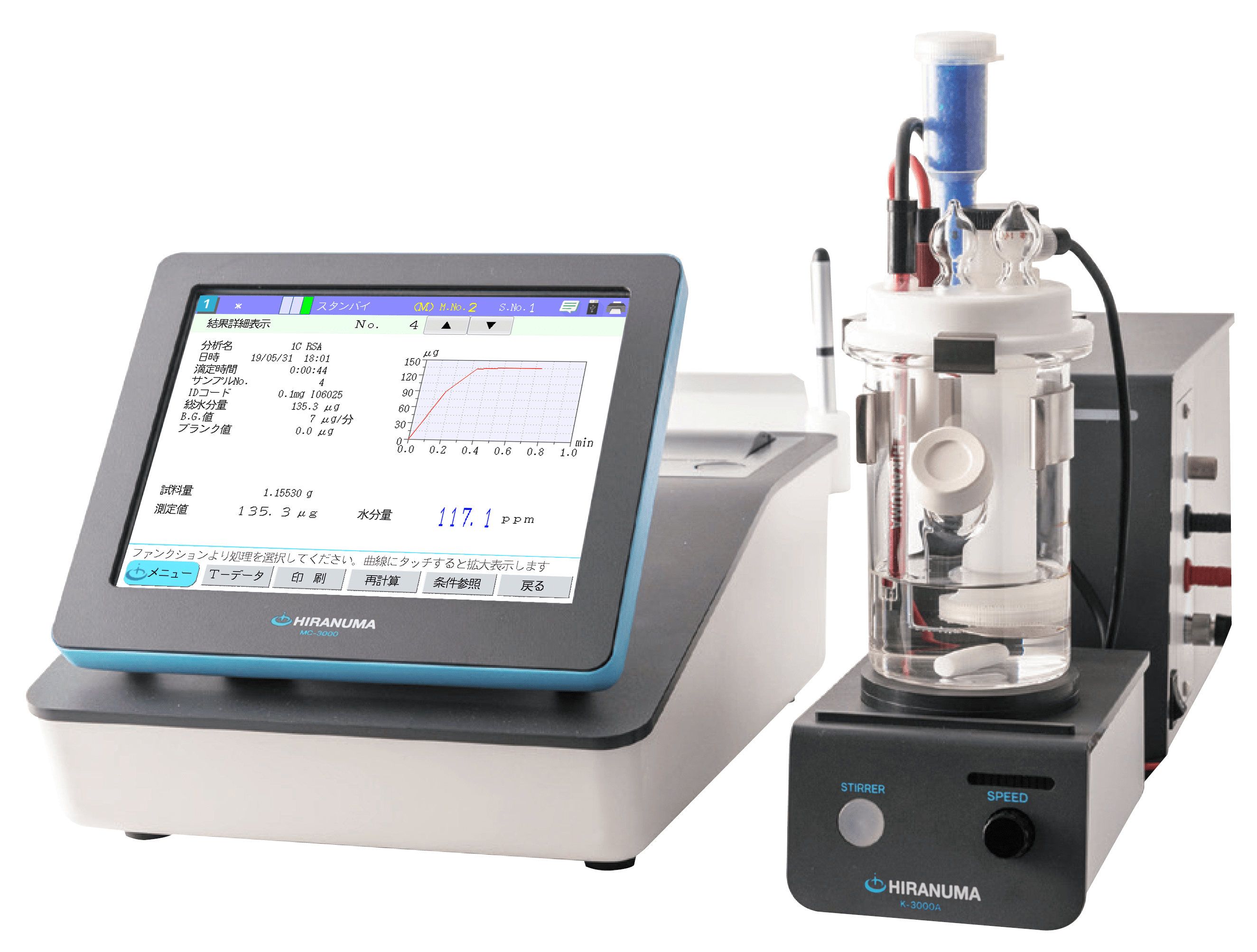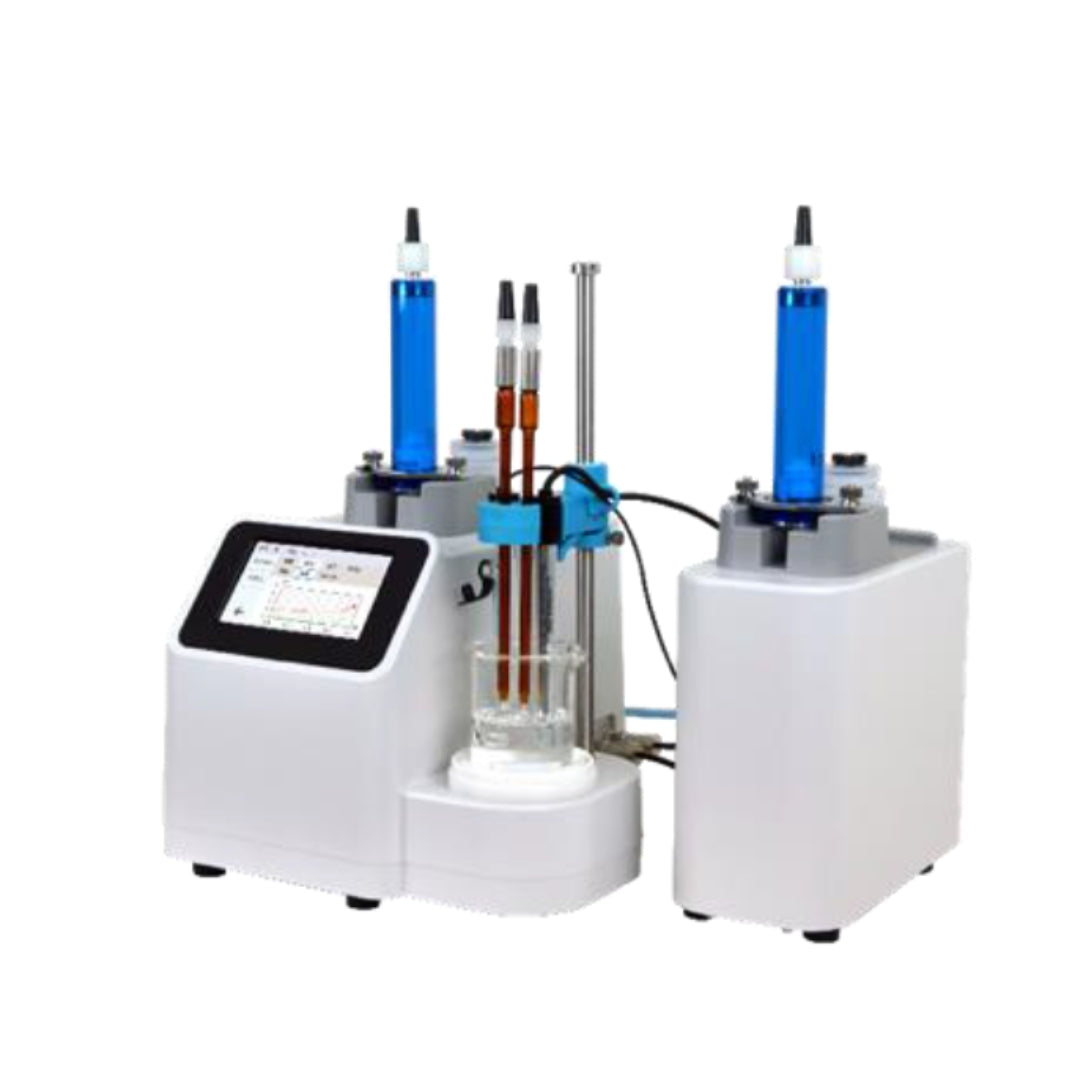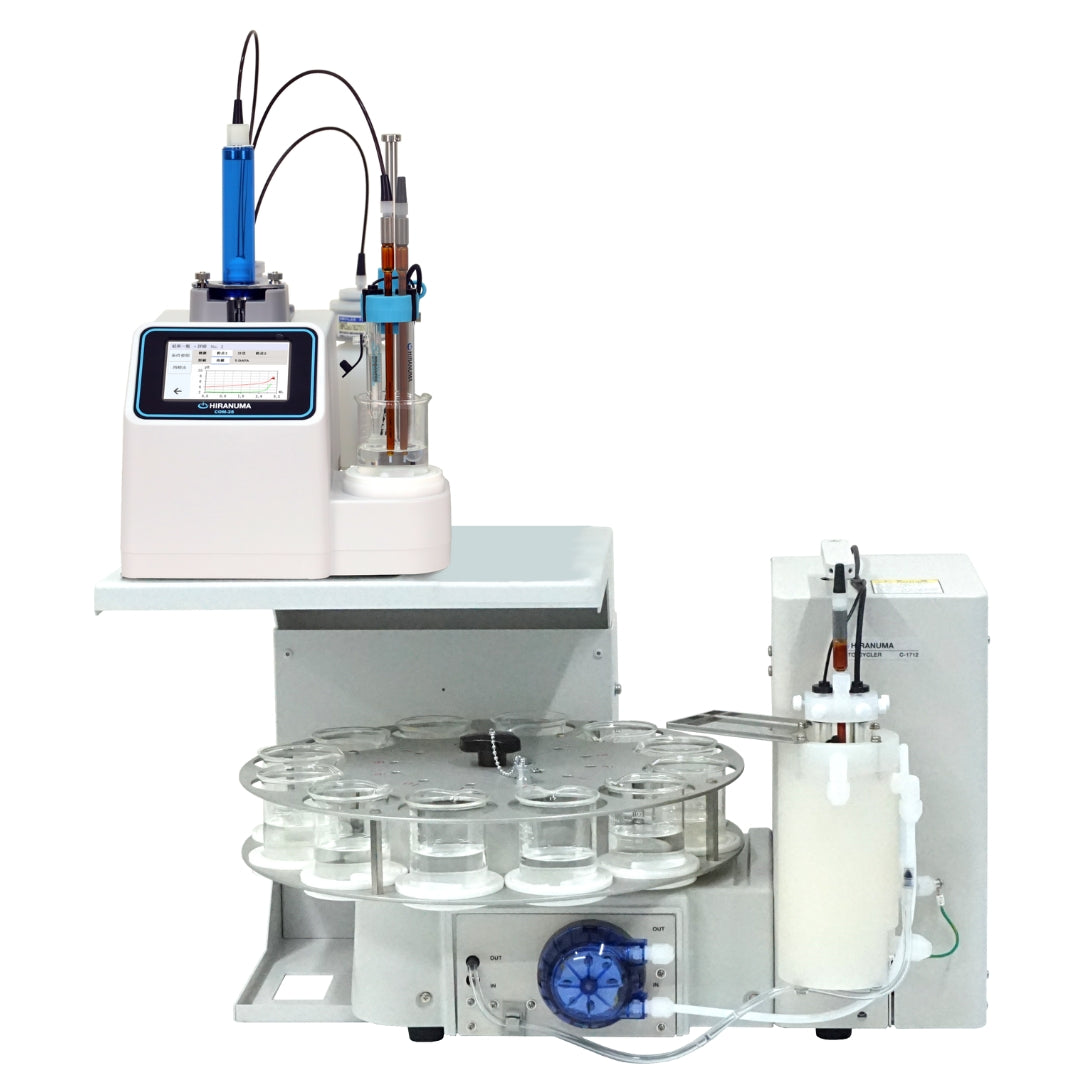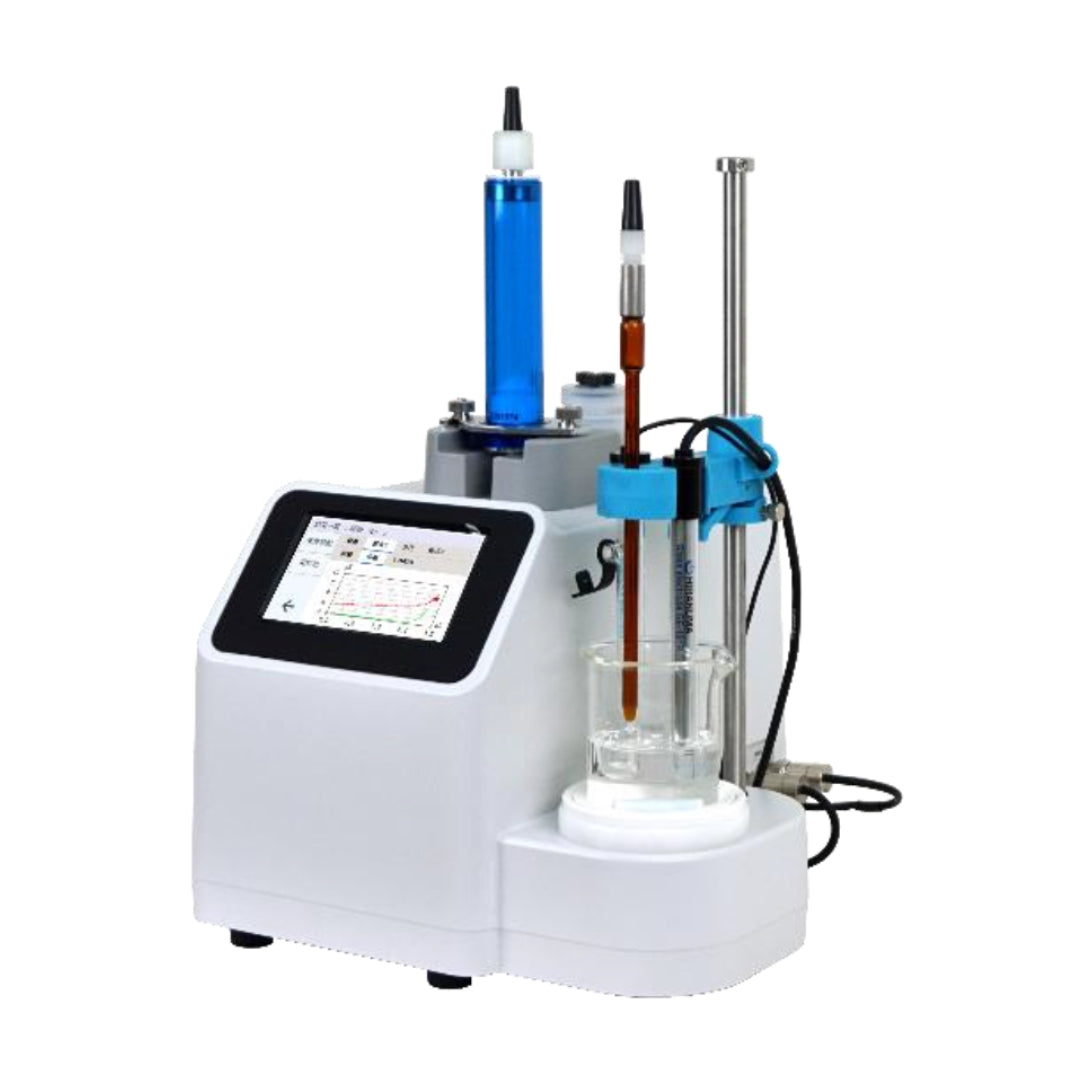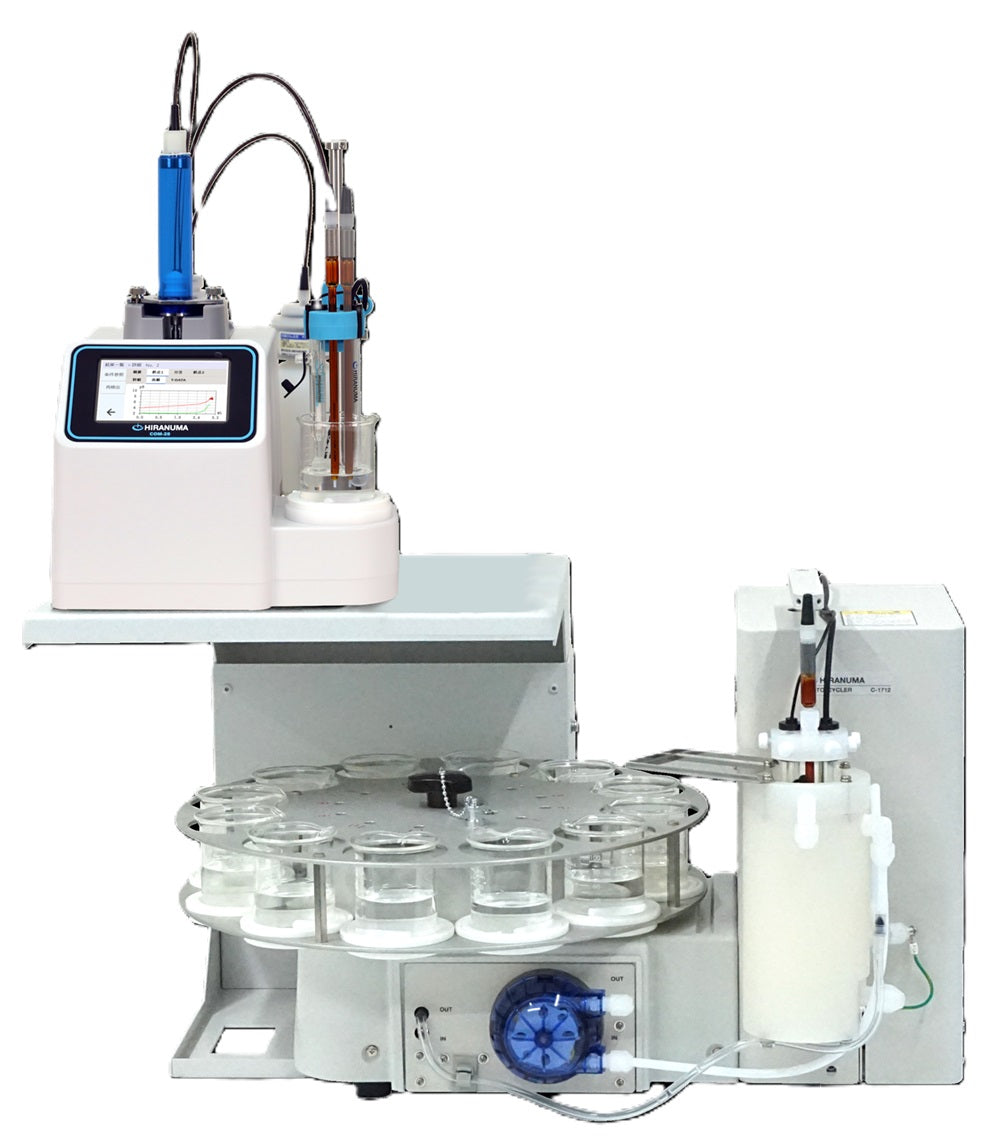| HIRANUMA APPLICATION DATA | Automatic Titrator | Data No. | F9 | Apr. 5,2019 |
| Electric & Electronics | Determination of alkaline component in photoresist remover solution |
1. Abstract
Strong alkaline solution is used as remover for residual photoresist on the substrate after the development of the substrate for liquid crystal display instrument etc. The composition depends on the intended use but sodium hydroxide, potassium hydroxide, and tetramethylammonium hydroxide (TMAH) are used as remover.
TMAH can be determined by potentiometric titration with hydrochloric acid standard solution. TMAH could absorb carbon dioxide gas and generate carbonates, it indicates another inflection point at pH around 4 on the titration with hydrochloric acid standard solution. This report introduces an example of fractional determination for TMAH and carbonates.
| N(CH₃)₄OH + HCl → N(CH₃)₄Cl + H₂O | ・・・(1) |
| [N(CH₃)₄]₂CO₃ + HCl → N(CH₃)₄HCO₃ + N(CH₃)₄Cl | ・・・(2) |
The reactions between TMAH and hydrochloric acid is described in formula (1), carbonate and hydrochloric acid is shown in formula (2). Carbonate generates hydrogen carbonate on reaction (2), it is continuously titrated with hydrochloric acid to the endpoint at around pH 4. The reaction between hydrogen carbonate salt and hydrochloric acid is indicated in formula (3).
| N(CH₃)₄HCO₃ + HCl → N(CH₃)₄Cl + CO₂ + H₂O | ・・・(3) |
2. Configuration of instruments and Reagents
| (1) | Configuration of instruments | ||
| Main unit | : | Hiranuma Automatic Titrator COM series | |
| Electrodes | : | Glass electrode GE-101B Reference electrode RE-201Z *The following electrodes are usable instead of the above electrodes. ・Glass reference combination electrode GR-501BZ…Fixed sleeve type ・Glass reference combination electrode GR-511BZ…Moveable sleeve type |
|
| (2) | Reagents | ||
| Titrant | : | 0.5 mol/L Hydrochloric acid standard solution | |
3. Measurement procedure
| (1) | Take about 25 g of sample into a 50 mL beaker and weigh accurately. |
| (2) | Immerse electrodes and start titration with 0.5 mol/L hydrochloric acid standard solution. |
4. Measurement conditions and results
Examples of titration conditions
(1) Titration of TMAH and carbonates

(2) Titration of hydrogen carbonate salt

Measurement results
Measurement results of TMAH
| Number of measurement |
Size (g) |
Titrant Volume(mL) |
Concentration (%) |
|---|---|---|---|
| 1 | 25.1153 | 12.836 | 2.2864 |
| 2 | 25.1280 | 12.837 | 2.2847 |
| 3 | 25.1398 | 12.839 | 2.2827 |
| Statistic calculation |
Avg. | 2.285 % | |
| SD | 0.0019 % | ||
| RSD | 0.08 % | ||
Example of titration curve

Measurement results of carbonates
| Number of measurement |
Size (g) |
Titrant volume (mL) |
Concentration (%) |
|---|---|---|---|
| 1 | 25.1153 | 0.299 | 0.1246 |
| 2 | 25.1280 | 0.303 | 0.1262 |
| 3 | 25.1398 | 0.310 | 0.1291 |
| Statistic calculation |
Average | 0.127 % | |
| Standard deviation | 0.0023 % | ||
| Coefficient of variation | 1.80 % | ||
Example of titration curve

5. Note
(1) Measurement method
TMAH is strong alkaline reagent which absorbs carbon dioxide gas in the air and generates carbonates. Purging air on sample solution with nitrogen gas can reduce the influence of carbon dioxide on the titration. Using air passed through soda lime absorption column instead of nitrogen gas also has a positive effect. Water wasn’t added to sample; non-diluted sample was titrated directly in this measurement. Please pay attention to carbonic acid in the water when it is added for the sample dilution before the titration.
(2) Sample measurement with little carbonates content
The obvious inflection point come from carbonates (second inflection point) was obtained at the endpoint in this report because the sample contained the certain amount of carbonate. Therefore the endpoint detection method was set to “Auto” which detects inflection point automatically. It sometimes shows the unclear inflection point when the sample contains little carbonates. In that case, set the endpoint detection method for carbonate to “Set” with “pH 4” as endpoint. The sodium carbonate was directly titrated with the hydrochloric acid standard solution in this report. There is another method to titrate the barium carbonate generated by the addition of barium chloride in advance. This method is useful for a sample containing less amount of sodium carbonate. The inflection point for the carbonate becomes single on the titration curve. (The first inflection point is come from only TMAH, and the second inflection point is come from only sodium carbonate (barium carbonate).) This method is useful to determine the low carbonate concentration because the titrant volume to determine the carbonate concentration gets twice.
(Please refer to application note F10 regarding barium chloride addition method.)
Keywords: Tetramethylammonium hydroxide, TMAH, Remover, Carbonates, Neutralization titration
*Some measurement would not be possible depending on optional configuration of system.

